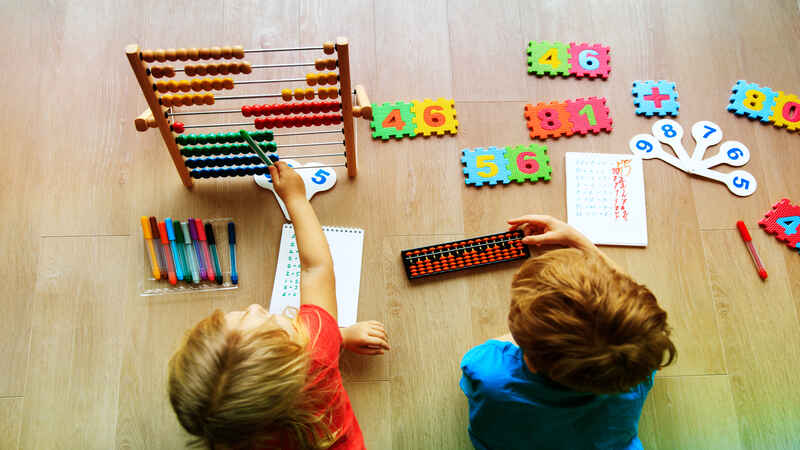
Mathematics is omnipresent. From checking time to buying a dozen apples and baking, it’s everywhere. If you are one of those mothers, who shied away from maths during your childhood I bet you remember your struggle with the formulas, exponents and equations! Are you observing the same trend in your kid? Probably your child considers maths as a monster that makes him toil and concentrate. Even though mathematics may be regarded as a nightmarish, its importance cannot be sidelined. Apart from the application in daily life, maths boosts problem solving, analytic and reasoning skills. Research indicates early maths training as a strong predictor of scholastic achievement and attention. So why not strive to provide your kid with a solid math foundation?transform his math experience from drab to fab.
10 Tips that will transform your child’s experience with Maths from drab to fab!
- Make maths fun: Kids are disinterested in the subject mostly because it’s boring. Rather than stressing on memorizing tables, use colorful play items such as jelly beans, coins, Lego blocks and pencils to visualize problems. Let him manipulate objects to figure out basic concepts. For addition, he could add one, two, or more blocks to a pile of blocks and then tell you how many blocks are in the pile. This approach develops interest
- Pay attention to writing: Often inappropriate alignment leads to errors. Teach your kid to write neatly and in proper way. Use math notebooks or graph papers which have printed blocks
- Practice: Math is a skill, not a talent. It’s an ability that’s developed over time, with practice. Devise a routine such that the lessons taught in school are immediately practiced at home. Give ample problems to ensure sufficient practice of a concept before moving on to the other. Practicing sums of each concept daily will reinforce skills. The more he practices, the sooner he will develop confidence in his abilities
- Focus on word problems: Some kids find word problems particularly frustrating. Encourage your kid to read the word problem several times to understand it. Use diagrams to explain and act using objects if necessary
- Involve maths in child’s daily routine: Stick table/formula posters in your kid’s room. When you are out shopping, let him calculate the price of two ice cream tubs or the bill while you wait in the queue for payment. At home, give him the task of counting eggs in the fridge or apples on the table. Promote mental maths. Let him calculate the remaining hours before his favourite TV shows are aired. Teach mental maths as game
- Play mathematical games: Since kids are more receptive to learning when it is associated more with play, it is a good idea to expose kids to math in fun ways. Encourage him to play Sudoku, chess, ludo, checkers, monopoly etc. Play math quiz with him and let him also quiz you. Install math-oriented games on Nintendo or iPad
- Reward: If your kid is particularly slow or weak in math, then consider rewarding him when he gets his homework right. You can simply treat him with an ice-cream or let him watch his favorite show for an extra half hour. A pat, some words of appreciation nd praise will go a long way. This will motivate him
- Track progress:Track his math progress for your perusal and the child’s motivation. Use King of Maths app or simply chart the correct sums per week. Set goals and rewards. This builds the child’s confidence and promotes active and independent learning
- Make maths more interactive: Making math practice low pressure helps motivate your child to have fun while he learns math concepts. Read math-oriented stories such as ‘The Number Devil’ and ‘Math fables’ which beautifully illustrates mathematical concepts in the form of captivating stories. Another idea is to show the incredible move of Donald Duck in Mathemagic Land. Kids are overwhelmed by the idea of their favorite cartoon explaining maths
- Try Vedic maths: There are a multitude of positive reviews about Vedic maths. It is found that children can solve problems more easily and quickly. It is more fun than regular maths and promotes mental maths and creativity.
Lastly, it’s very important not to pass on your sloppy attitude towards maths to your kid. Avoid negative math sentiments such as “Math is hard” or “You’re like me, I’m not good in math”. This will give him an impression that maths is fearsome and hard subject. It’s likely to make him nervous and disinterested. Enlighten your kid with the varied applications and requirement of maths in various professions and in daily routine, be it as simple as counting money. Make math enjoyable for him so that he can associate math with fun, pleasure and parental love and attention.

